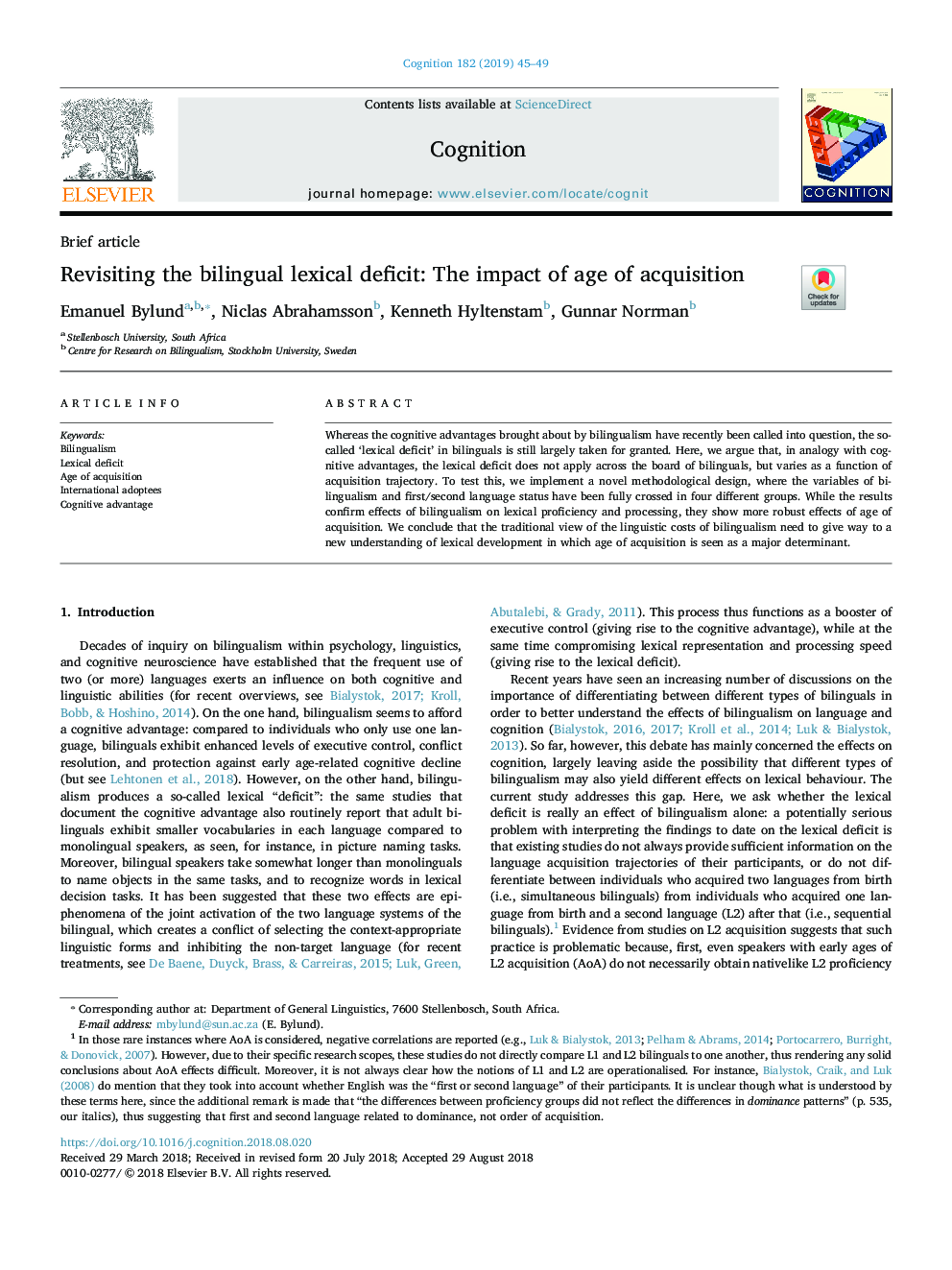| Article ID | Journal | Published Year | Pages | File Type |
|---|---|---|---|---|
| 10147061 | Cognition | 2019 | 5 Pages |
Abstract
Whereas the cognitive advantages brought about by bilingualism have recently been called into question, the so-called 'lexical deficit' in bilinguals is still largely taken for granted. Here, we argue that, in analogy with cognitive advantages, the lexical deficit does not apply across the board of bilinguals, but varies as a function of acquisition trajectory. To test this, we implement a novel methodological design, where the variables of bilingualism and first/second language status have been fully crossed in four different groups. While the results confirm effects of bilingualism on lexical proficiency and processing, they show more robust effects of age of acquisition. We conclude that the traditional view of the linguistic costs of bilingualism need to give way to a new understanding of lexical development in which age of acquisition is seen as a major determinant.
Related Topics
Life Sciences
Neuroscience
Cognitive Neuroscience
Authors
Emanuel Bylund, Niclas Abrahamsson, Kenneth Hyltenstam, Gunnar Norrman,
